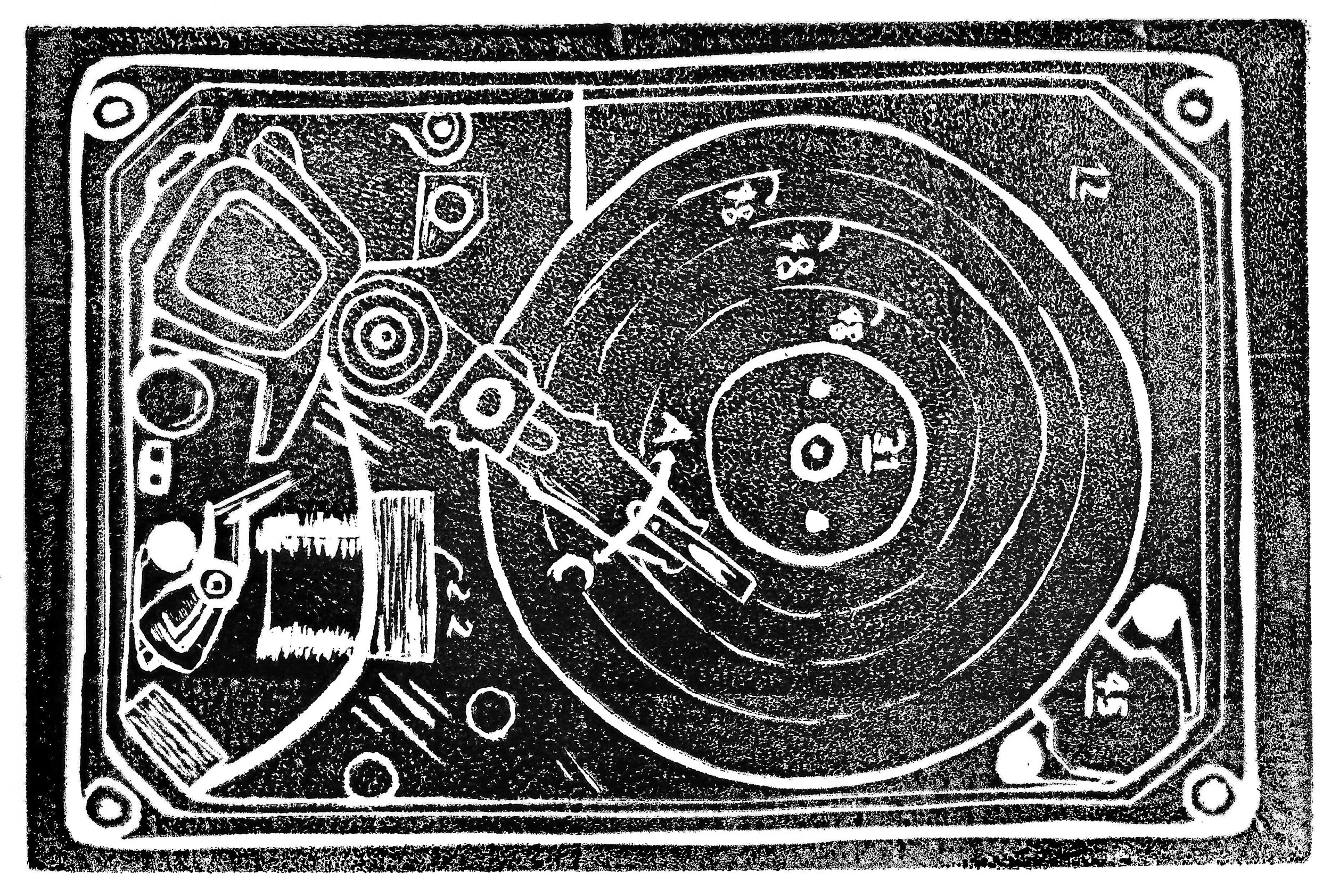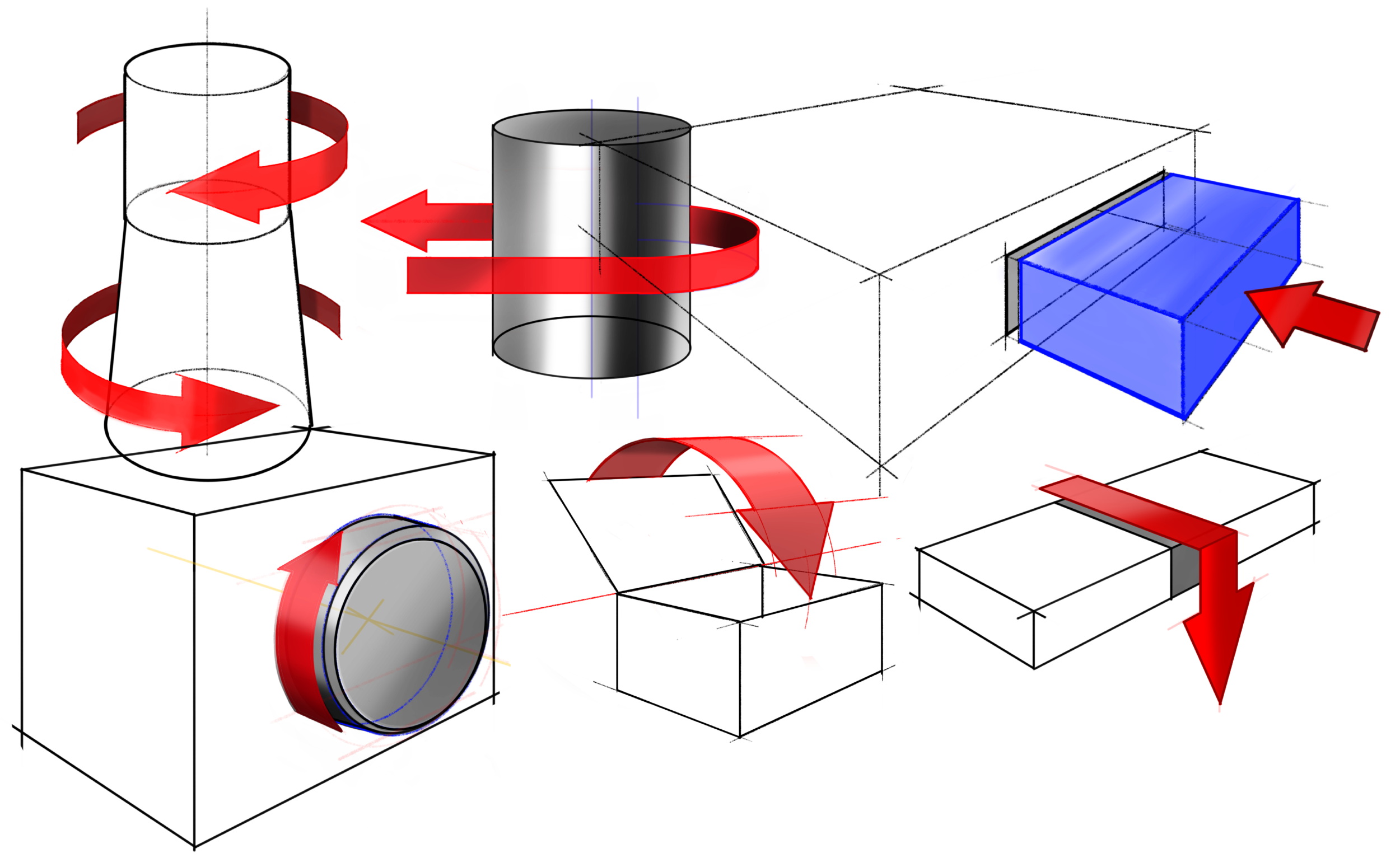When I was an engineering student I took three CAD classes, mostly because they were fun. When I was the director of engineering at ATL, CAD was at the center of all our detailed design work. It was indispensable to our engineering. When I became a professor, however, my appreciation for CAD slowly and unconsciously faded. Luckily, a new university assignment has put CAD back on my radar and my appreciation for it is greater than ever.
Mechanical Design
As someone who loves design of all kinds, it can be easy to get carried away and lose track of where I, as a mechanical engineer, fit in the design world. For me it is important to understand what makes mechanical design different than any other kind of design. Understanding this puts me in a better position to know how my specific training and design decisions can affect the world.
Lenses to Interpret the Visual Form of Products and Why it Matters
Lenses are useful to focus and bend light. In design, metaphorical lenses can likewise focus our attention and bend our design towards various essential factors.
Designing a Flag
Mississippi is redesigning its flag. What do you think is important for this redesign effort? Read about five points or requirements that might be heavily weighted during the process.
“Caveat Emptor” – Let the Buyer Beware
Caveat Emptor… Who are you really designing for? Yourself? The Customer? The Customer’s Future?
Self-Made: A Conversation with Drew Henry
Many people have asked if it is possible to become an engineer without a degree. When we pose this question to Google, we get more than 30 million results in response to this question. Answers ranged from a solid no to multiple sites listing jobs in engineering that don’t require a degree. In reality, it depends on the field, the job, and often where you live. To learn more about this path to engineering, we decided to interview a successful business-owner and self-taught engineer to get his take on this topic.
8 Lessons Learned Designing a COVID-19 Response Ventilator
Designing during a pandemic with time pressures can be a little different than traditional design. Read 8 lessons Andrew Armstrong learned while designing a ventilator for COVID-19 patients.
The Fourth Face of Innovation: The Hurdler
Hurdlers are people who find a way around, under, and often over an obstacle directly in their path. Find out what Tom Kelley shares about being a Hurdler - the fourth face of innovation.
Racism in America, manifested in engineering design: A pledge to take responsibility and action
Changes in our systems must happen everywhere, across all industries, and I believe engineers and designers have an important role and responsibility in the U.S’ plight against injustices.
Getting the Most out of Digital Calipers
If your job involves product or part geometry, I believe you should own and use a pair of digital calipers. They are one of the most important measurement tools to access the details of the geometry you’re working with. Even if your job is purely theoretical, it can be helpful to simply use the calipers to visualize the size and scale of features you’re specifying or being asked to work with.
Design in Data Figures: Absolute Versus Relative Scales
The right scale can make all the difference in the world when it comes to appropriate data figures. This is one article in a series of techniques and practices for designing good figures and visualizations.
The Covid-19 Utah Mask: An interview with Michael Horito
As Co-Vid 19 evolved from an epidemic to a pandemic, there was a global shortage of Personal Protective Equipment (PPE). Desperate to help, makers began printing reusable masks in the hope to aid those on the front-lines. Rocketship, a product design firm based in Provo, was one of the many that answered the call. They designed what has become to be known as the "Utah mask". Michael Horito, from Rocketship, talked to us about their efforts.
Two Roads Diverged in a Yellow Wood, And I Took the One Designed Better
We spend a larger portion of our lives in a vehicle than we realize. That doesn’t mean we can forget about design while traveling by car. The lessons for good design can still be found all over our roadways and transportation system. Keeping your eyes on the road can let your eyes see some good design features too.
Dieter Rams: Less but Better
Although design is largely concerned with the future and what we’ll design it to be, it’s valuable to look to the past for inspiration and to quickly learn what might have taken decades for our predecessors to learn.
Design in Data Figures: Dealing with Occlusion
Communication with data figures can be a large part of design. This is the beginning of a series of techniques and practices for designing good figures and visualizations.
Human-Centered Engineering: A Conversation with Professor Nathan Johnson
Editors from the BYU Design Review recently sat down with Professor Nathan Johnson, an associate professor in The Polytechnic School of the Ira A. Fulton Schools of Engineering at Arizona State University, with research areas in global sustainability and systems engineering. Check out a few short passages taken from the interview.
Two Dramatically Different Approaches to Design: From the Art of Innovation
While the book, The Art of Innovation by Tom Kelly, is full of useful anecdotes, principles, and tips, there is one timeless principle that I wish more creative people knew and practiced – especially engineers. It’s related to seeking feedback.
Good Design: The Milwaukee Fastback Utility Knife
Although the knife has been on the market for 10 years, I bought my first one only 3 years ago after seeing a friend rely on his utility knife way more than I relied on mine.
The Third Face of Innovation: The Cross-Pollinator
There are clear benefits of knowing a little about a lot (i.e. breadth) and there are clear advantages of knowing a lot about a little (i.e. depth). Of course, it’s better to know a lot about a lot, but that’s unquestionably difficult to achieve. Cross-Pollinators are generally classified in the former category (breadth) although they often have at least one domain of expertise too.
Learn to Sketch: Part 4
Enhance your sketches with motion arrows, annotations, and dimensions.



















